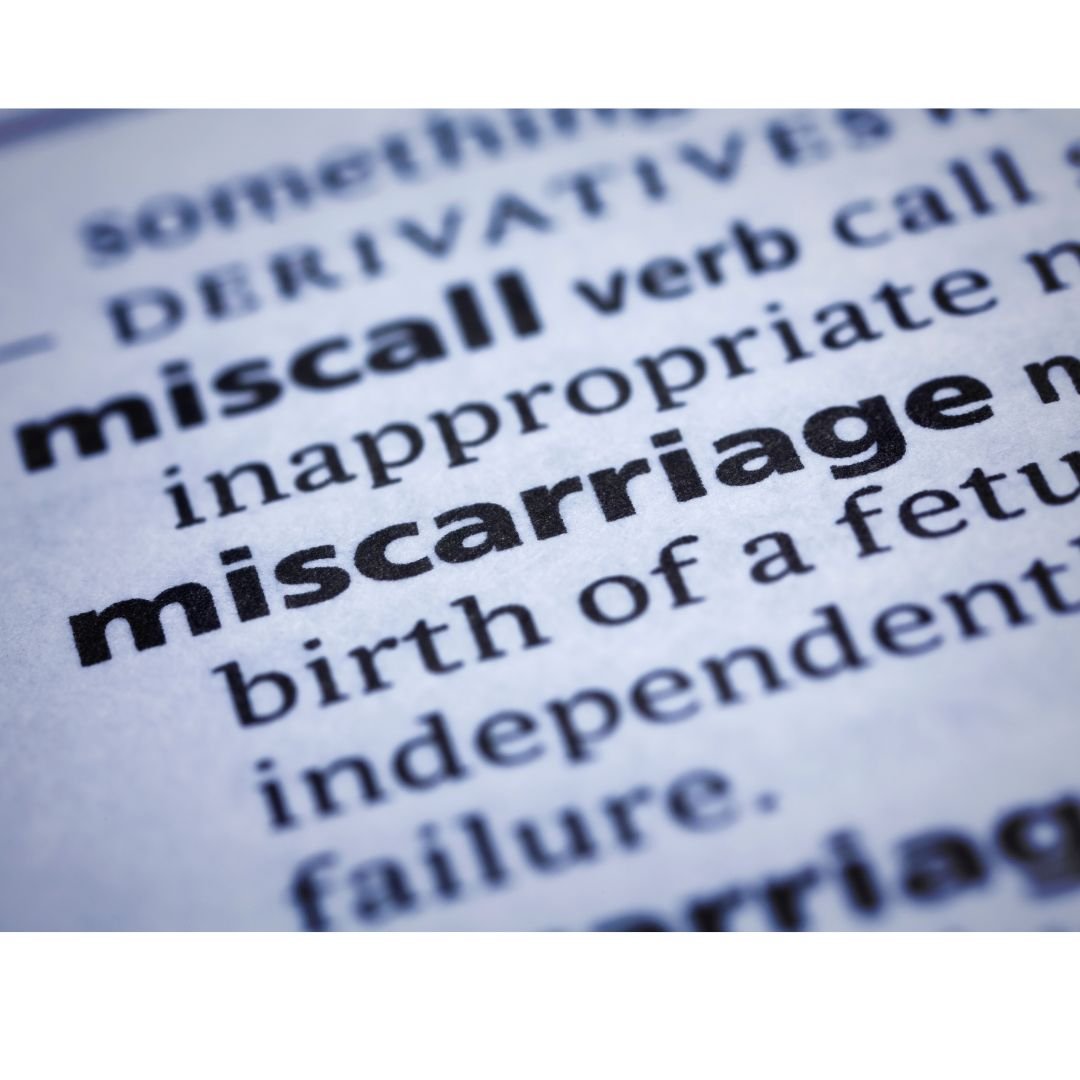Can PCOS Cause Miscarriage: Understanding the Connection
Published - Dec 26, 2023
Published by: PCOS FERTICURE CLINIC
- Extensive research has indicated that women with PCOS may face an elevated risk of experiencing
miscarriages compared to those without the condition
- While the connection between PCOS and miscarriage is concerning, it's crucial to recognize that not
all
women with PCOS will encounter this outcome. Some proactive measures can be considered to bring down
the risk of miscarriage: Scroll Below to Read the article further
Intricate Link Between PCOS and Miscarriage, Causes and its possible Preventions
Understanding PCOS:
Before we dive deeper into the link between PCOS and miscarriage, let's establish a
clear understanding of what PCOS entails. PCOS is a complex condition that disrupts a woman's hormonal
balance, often resulting in enlarged ovaries with small cysts on their outer edges. These hormonal
imbalances can lead to a range of health issues, including difficulties in conceiving and sustaining a
pregnancy.
The Connection Between PCOS and Miscarriage:
Extensive research has indicated that women with PCOS may face an elevated risk of
experiencing miscarriages compared to those without the condition. This heightened risk can be attributed to
several key factors:
- Hormonal Imbalances: PCOS frequently leads to irregular menstrual cycles and elevated levels of
androgens (male hormones) such as testosterone. These hormonal fluctuations can challenge the uterine
lining's ability to prepare for a healthy pregnancy, thereby increasing the risk of miscarriage.
- Insulin Resistance: Many women with PCOS also grapple with insulin resistance, a condition where their
cells do not respond effectively to insulin. This results in elevated blood sugar levels, which, when
present during pregnancy, can prove detrimental to fetal development and heighten the risk of
miscarriage.
- Inflammation: PCOS is associated with chronic inflammation within the body. Inflammation can have an
adverse impact on the uterine environment, making it less conducive to a successful pregnancy.
- Obesity: Obesity is a common issue among women with PCOS. The presence of excess body weight can further
amplify the risk of miscarriage and other complications during pregnancy.
Minimizing the Risk of Miscarriage with PCOS:
While the connection between PCOS and miscarriage is concerning, it's crucial to
recognize that not all women with PCOS will encounter this outcome. Some proactive measures can be
considered to bring down the risk of miscarriage:
- Effective Management of Hormonal Imbalances: One of the primary factors contributing to the increased
risk of miscarriage in women with PCOS is hormonal imbalances, particularly elevated levels of androgens
(male hormones) like testosterone. These hormonal fluctuations can disrupt the regular menstrual cycle
and interfere with the preparation of the uterine lining for a healthy pregnancy. To mitigate this risk,
seeking medical guidance for hormonal management is essential. Healthcare providers may prescribe
hormonal treatments to regulate menstrual cycles and restore hormonal balance.
- Addressing Insulin Resistance: Insulin resistance is a common companion of PCOS and can lead to elevated
blood sugar levels. High blood sugar during pregnancy can be detrimental to fetal development and
increase the risk of miscarriage. To manage insulin resistance, maintaining a balanced diet and engaging
in regular exercise is crucial. Complex carbohydrates, lean proteins, and foods with a low glycemic
index should be part of the diet, and portion control is key. Healthcare providers may also recommend
medications or insulin-sensitizing drugs to manage blood sugar levels effectively.
- Managing Inflammation: PCOS is often associated with chronic inflammation within the body. This
inflammation can adversely affect the uterine environment, making it less conducive to a successful
pregnancy. Incorporating anti-inflammatory foods like fruits, vegetables, and omega-3 fatty acids into
your diet can help reduce inflammation. Additionally, managing stress through techniques like
meditation, deep breathing, and yoga can also contribute to reducing overall inflammation.
- Achieving a Healthy Weight: Obesity is a common issue among women with PCOS, and excess body weight can
amplify the risk of miscarriage and other complications during pregnancy. Maintaining a healthy weight
through a well-balanced diet and regular physical activity is crucial. Weight management can improve
insulin sensitivity, regulate hormone levels, and create a more favorable environment for a successful
pregnancy. Consulting with a healthcare provider or nutritionist for a personalized weight management
plan is highly recommended.
- Early and Regular Prenatal Care: Early and consistent prenatal care is vital for all pregnant women but
especially crucial for those with PCOS. Regular check-ups with your healthcare provider allow for close
monitoring of your pregnancy and any potential complications. Your healthcare team can tailor their
approach to your specific needs, ensuring that any issues are identified and addressed promptly.
- Lifestyle Adjustments: Adopting a healthy lifestyle that includes stress management, a well-balanced
diet, and regular physical activity can significantly improve overall health and fertility. Reducing
stress through relaxation techniques, prioritizing sleep, and incorporating stress-reducing activities
into your daily routine can positively impact your pregnancy journey.
Recurrent Miscarriage and Its Causes:
Recurrent miscarriage, defined as experiencing three or more consecutive pregnancy
losses, can be especially challenging for women with PCOS. While the causes of recurrent miscarriage can
vary, some potential factors include:
- Chromosomal Abnormalities: Chromosomal abnormalities in either the mother or father can lead to
recurrent miscarriages.
- Uterine Abnormalities: Structural issues in the uterus, such as fibroids or a septum, can contribute to
repeated pregnancy losses.
- Thrombophilias: Blood clotting disorders can increase the risk of miscarriage, and these conditions may
require specific treatments.
- Autoimmune Disorders: Certain autoimmune diseases can affect pregnancy outcomes, and managing these
conditions is crucial.
- Endocrine Disorders: Hormonal imbalances beyond those caused by PCOS can also play a role in recurrent
miscarriages.
Tips for a Healthy Pregnancy:
Now, let's explore some essential tips to promote a healthy pregnancy, particularly if
you have PCOS:
- Prioritize Prenatal Care: Prenatal care is the cornerstone of a healthy pregnancy. Starting early
and
maintaining regular check-ups with your healthcare provider is essential. These visits allow for the
monitoring of your health and the baby's development, enabling early detection and management of any
potential issues. Open communication with your healthcare provider ensures that you receive the
necessary guidance and support throughout your pregnancy journey.
- Balanced Nutrition: Ensuring a well-balanced diet is paramount during pregnancy. Your body
requires an
array of essential nutrients like folic acid, iron, calcium, and omega-3 fatty acids to support your
baby's growth and development. A consultation with a healthcare provider or nutritionist can help you
create a personalized meal plan tailored to your unique needs, ensuring that both you and your baby
receive the nourishment you require.
- Stay Hydrated: Proper hydration is vital during pregnancy. With the increased blood volume and
amniotic
fluid necessary for your baby's growth, aim for at least eight glasses of water a day. Staying
well-hydrated can help prevent common pregnancy discomforts and ensure that your body functions
optimally throughout this critical time.
- Maintaining regular, safe, and moderate exercise can offer numerous benefits during pregnancy.
Activities like walking, swimming, and prenatal yoga not only help you stay physically fit but can also
reduce discomfort and prepare your body for labor. Consult with your healthcare provider to determine
the most suitable exercise routine for you and your baby.
- Manage Stress: Stress management is essential for both your well-being and the health of your
baby.
Pregnancy can bring about various emotions, and it's crucial to find effective ways to reduce stress.
Deep breathing exercises, meditation, or soothing prenatal massages are excellent relaxation techniques
to incorporate into your routine to promote emotional balance.
- Adequate Rest: Pregnancy often brings about fatigue, and it's essential to prioritize adequate
rest.
Ensure you get enough sleep during the night, and if possible, consider taking short naps during the day
to recharge your energy levels. A well-rested body is better equipped to handle the physical and
emotional demands of pregnancy.
- Avoid Harmful Substances: During pregnancy, it's imperative to steer clear of substances that can
harm
your baby's development. Say no to alcohol, tobacco, and recreational drugs, as they pose significant
risks to your baby's health. By avoiding these substances, you're providing the best possible
environment for your baby to thrive.
- Educate Yourself: Knowledge is empowering during pregnancy. Consider enrolling in childbirth and
parenting classes to prepare for labor, delivery, and newborn care. Understanding what to expect and
being well-prepared can alleviate anxiety and boost your confidence as you embark on this transformative
journey.
- Regular Dental Care: Hormonal changes during pregnancy can affect oral health. Maintaining
regular
dental check-ups and cleanings is essential to prevent dental issues that may arise during pregnancy.
Inform your dentist about your pregnancy so that they can provide the appropriate care and advice for
oral health during this time.
- Communicate Openly: Open and frequent communication with your healthcare provider is key
throughout your
pregnancy. Don't hesitate to share any concerns, questions, or discomforts you experience. Your
healthcare provider is there to offer guidance, address your worries, and ensure that you and your baby
are on the right track.
- Support System: Building a strong support system of family and friends can make a significant
difference
in your pregnancy journey. Surround yourself with loved ones who can provide emotional support and
practical assistance when needed. Having a network of caring individuals can ease the emotional and
physical demands of pregnancy.
- Plan for Delivery: Discussing your birth plan with your healthcare provider is an essential step
in
preparing for delivery. Consider your preferences for labor, pain management, and delivery. Having a
clear plan in place allows you to feel more confident and in control when the big day arrives.
- Monitor Weight Gain: Keeping track of your weight gain during pregnancy is important for both you
and
your baby's well-being. Healthy weight management helps prevent complications and ensures that your baby
is growing appropriately. Your healthcare provider will guide you on the recommended weight gain based
on your pre-pregnancy BMI.
- Be Mindful of Travel: Before traveling during pregnancy, especially during the third trimester,
consult
with your healthcare provider. They can offer guidance on safe travel practices and address any specific
concerns you may have. Ensuring your comfort and well-being during your trip is essential.
- Trust Your Instincts: Finally, trust your instincts. You know your body best, and if something
doesn't
feel right, don't hesitate to seek medical advice. Your intuition can often be a valuable indicator of
your well-being and your baby's health. Always prioritize your health and your baby's safety throughout
your pregnancy journey.
Conclusion
While PCOS can indeed heighten the risk of miscarriage, it's essential to remember that
not every woman with PCOS will face this challenge. By comprehending the intricate connection between PCOS
and miscarriage and actively managing your condition through lifestyle changes and medical interventions,
you can substantially enhance your chances of a successful pregnancy. Implementing these tips for a healthy
pregnancy is vital, particularly for women with PCOS. If you're concerned about your fertility or have
experienced recurrent miscarriages, seeking guidance and support from a healthcare professional is crucial
for personalized care.

